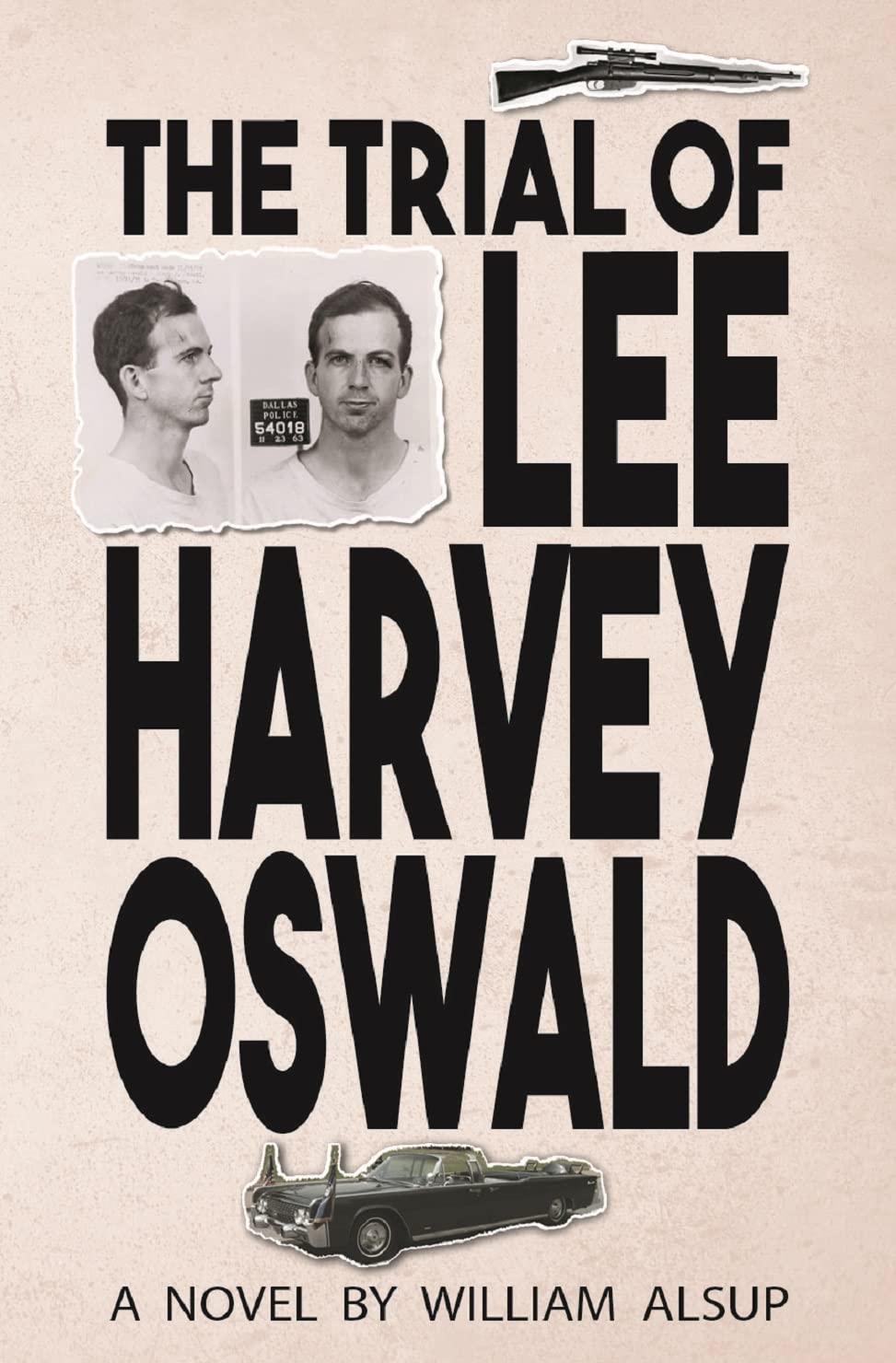
FICTION
The Trial of Lee Harvey Oswald: A Novel
William Alsup
NewSouth Books
Hardback, 978-1-58838-469-0, 320 pages
September 15, 2022
Lee Harvey Oswald, accused of assassinating President John F. Kennedy in Dallas on November 22, 1963, never made it to trial. He was fatally wounded two days after his arrest, while in police custody. Jack Ruby, owner of three burlesque bars in Big D, shot Oswald as he was being paraded past a crowd of newspaper and television reporters. Countless questions were left unanswered and remain, fifty-nine years later, the subjects of continuing speculations and conspiracy theories.
William Alsup’s new novel, The Trial of Lee Harvey Oswald, presents an imaginative and eye-opening tale of what might have happened if Jack Ruby had missed his chance to gun down Oswald. Kennedy’s alleged killer likely would have faced murder charges and a judge and jury.
This work of alternate history is structured as a legal thriller, and it offers an enticing cast of real-life and fictional personalities to keep its story moving through taut chapters focused on investigations, pretrial maneuverings, courtroom actions, and the aftermath of the verdict.
Some of the best-known characters include Dallas District Attorney Henry Wade; U.S. Attorney Barefoot Sanders; journalists Jim Lehrer and Bob Schieffer; Oswald’s family members—wife Marina, brother Robert, and mother Marguerite; JFK’s brother and U.S. Attorney General, Robert Kennedy; and U.S. District Judge Sarah T. Hughes, who swore in President Lyndon B. Johnson as JFK’s successor.
In a preliminary hearing, one of America’s most illustrious criminal defense attorneys calmly but effectively takes command of Oswald’s defense when the judge asks the clerk to call the case. Alsup writes:
Almost simultaneously, a corner door aft of the bench opened where Oswald and three deputies entered. His ankles shackled and his wrists uncuffed, he wore striped jail clothes. Counsel rose to make their appearances. A larger-than-life character in a perfect, dark-blue, pinstriped suit with a white shirt, gold cufflinks, and red tie, stepped forward.
“Percy Foreman for the defense, Your Honor. Good morning.”
Much of the book involves verbal interplay between lawyers, witnesses, the judge, and the defendant, plus presentations of evidence. But the prosecution and defense teams also have strategy sessions outside the courtroom. And several chapters focus on interactions among police officers, FBI agents, and news reporters in the aftermath of JFK’s death.
Meanwhile, Lee Harvey Oswald has been saying little and shielding himself behind an uncooperative attitude. And Percy Foreman, who has won virtually every murder case he has ever handled, must patiently teach Oswald the basics of how to behave in court.
“In their trial practice sessions,” Alsup writes, “Percy drilled Oswald. Never smirk, he instructed; no smiles; no laughter; this is a death prosecution; never appear frantic; if you need to say anything, whisper it to me or maybe Karen [Foreman’s assistant], but stay silent—look respectful.”
The author is well qualified to speculate on what might have happened if Lee Harvey Oswald had lived to be tried. Along with doing long-term research on the Kennedy assassination, Alsup is a sitting federal judge in California who has presided over numerous high-profile cases. In his novel, he makes deft use of the Warren Commission’s famous—and lengthy—report, noting: “All of the physical evidence in this novel is from those twenty-six volumes except for one note by Oswald that was described for Congress in the late 1970s. Most of the testimony in this novel is also from those twenty-six volumes but some passages are my own estimates....”
Alsup cites three reasons why he created this unusual legal thriller. He hopes readers “will take from this work a fair, if slightly embroidered, understanding of the evidence for and against Oswald, will see how excellent attorneys, then and now, prepare and try tough cases, and will, if I have done my job, have a ringside seat at the legal drama that America craved but never got....”
This is Alsup’s fourth book. His most recent work, published in 2019, is a memoir titled Won Over: Reflections of a Federal Judge on His Journey from Jim Crow, Mississippi.
WILLIAM ALSUP is a senior United States District Judge of the United States District Court for the Northern District of California. Born in Jackson, Mississippi, Alsup received a Bachelor of Science degree in mathematics from Mississippi State University in 1967, a Juris Doctor from Harvard Law School in 1971, and a Master of Public Policy from Harvard University's John F. Kennedy School of Government in 1971.
